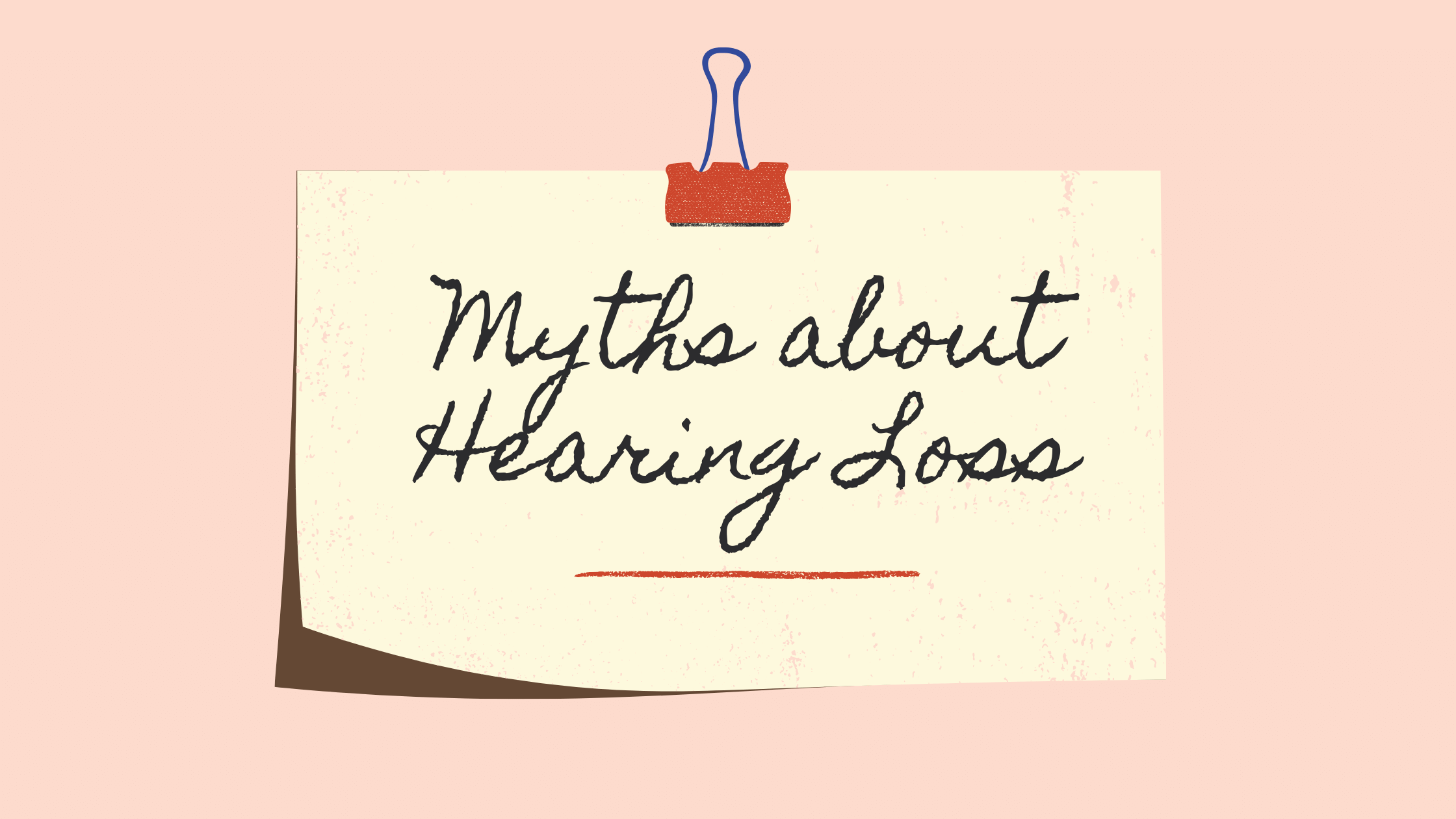
Hearing loss is incredibly common, and yet, misinformation about the condition abounds. From recognizing when hearing loss is occurring to understanding how hearing aids work, it pays to know the facts about hearing loss.
Myth #1: Hearing loss is silent
Truth: Many people are startled to learn that significant hearing loss isn’t silent. Instead, most people with hearing loss can recognize the sound of speech as well as other sounds in their surroundings. Hearing loss happens when it becomes difficult to parse the meaning and direction of speech. Spoken words may sound muffled and it will often be difficult to tell where they are coming from as well as what they mean.
Even if you can detect the sound of speech, hearing loss may be present when you are unable to hear the nuances in sound and tone. Hearing loss usually begins with a gradual loss of “detail” from the sounds in our surroundings. Increasing volume levels, having to ask for speakers to repeat themselves and frequently losing track of a conversation are all signs there may be serious issues with the way you hear.
Myth #2: Treating hearing loss can wait
Truth: Across the board, people tend to underplay the seriousness of their hearing issues, often putting off seeking treatment for years. In truth, hearing issues are best addressed as soon as they arise and waiting to seek help for hearing loss can cause it to worsen significantly.
Because hearing loss often happens gradually, it can be hard to determine a threshold of when hearing becomes “bad enough” to consider treatment. Unfortunately, adapting to treatments- such as hearing aids -is most effective when hearing problems are detected and treated early. This is true because of the cognitive patterns our brains develop around hearing loss.
As hearing loss progresses, the mind has to build new pathways to interpret the meaning of speech and sound from context clues. To do this, old hearing patterns are written over and new patterns are established in the brain that are fundamentally different from how healthy hearing works. When treatment for hearing loss is introduced, the longer the brain has been building these adjusted patterns, the harder it is to connect enhanced hearing to better comprehension. Meanwhile, early treatment introduces hearing improvements before new brain patterns are established allowing hearing aids to sound more “natural”.
Myth #3: It’s just my hearing
Truth: Because hearing loss is most often invisible and physically painless, it can be hard to connect it to other aspects of your health. However, by playing a huge role in how we communicate hearing loss can be a huge detriment to our cognitive and mental health as well as our quality of life. Hearing loss is connected to increased rates of depression, anxiety and social isolation. Risk of developing dementia also rises with the presence of untreated hearing loss. The worse a person’s hearing is, the greater the risk they run of cognitive issues, dementia included.
Hearing loss can also frequently develop alongside other health concerns. Statistics link cardiac disease and diabetes to increased rates of hearing loss. People with hearing loss are also much more likely to be injured in a fall or accident because increased cognitive strain decreases our body’s ability to respond to our surroundings deftly.
Myth #4: Hearing aids don’t work
Truth: In today’s marketplace it is easy to come across devices billing themselves as “hearing aids” that in truth are little more than a clunky and flimsy sound amplifier. These devices have been giving hearing aids a bad name for years and have little in common with the forefront of hearing technology.
When you are ready to seek treatment for hearing loss, we’re here to help! We provide comprehensive hearing exams and if a hearing loss is detected, we will help you select the best devices for your needs.
Hearing aids will be custom fitted to your ear and custom programmed to process sound in a way that meets your hearing challenges. While even the best hearing aids on the market may take a period of adjustment to get used to, the digital sound technology of these powerful devices can be life-changing. Finding the right hearing aid is important for treating your hearing loss and that’s where we come in. Notice a recent change in the way you hear? Contact us today!
